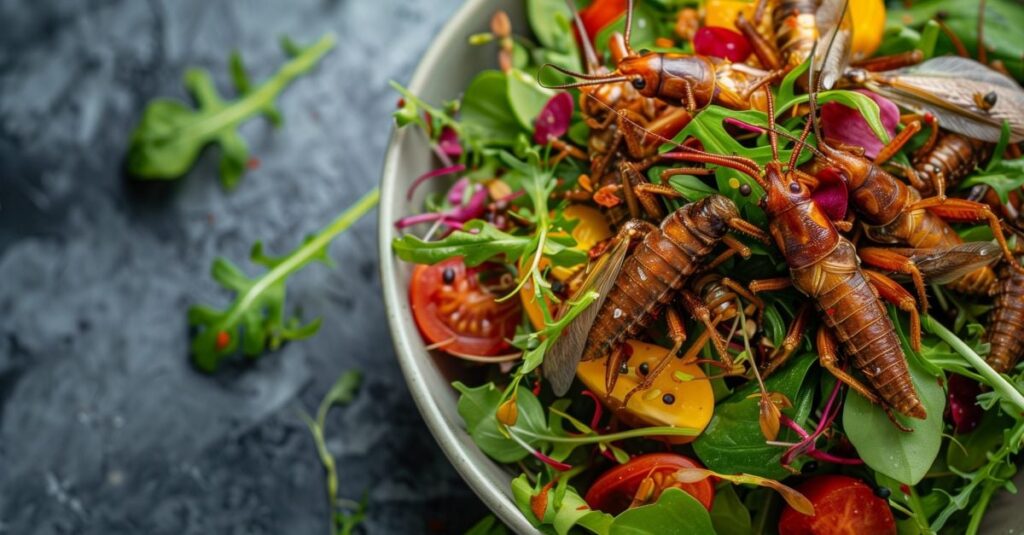To mark the release of its Responsible Retailing report, UK retailer Co-op has released an AI-generated image showing what food of the future could look like.
Experts from FixOurFood and the University of York believe that eating habits in 2054 will be dramatically different, with some extreme and almost unbelievable choices that seemed like the norm in 2024.
The report explores changing attitudes about food ethics and sustainability in the UK over the past 30 years.
The study predicts that traditional Sunday roasts and fish and chips could be replaced by new favourites such as cricket salad, cultured meat steaks and azora burgers.
“The past 30 years have seen a scientific leap towards more sustainable produce that was almost unimaginable in 1994,” explained Bob Doherty, director of FixOurFood and dean of the School of Business and Society at the University of York.[…]
“By 2054, edible insects could be on Brits' dinner tables – and smashed crickets could be coming sooner than whole grains.” […]”
The Future of Food
Farmers and producers will become even more valued in society over the next 30 years.
Indoor farming in cities across the UK will increase, encouraging the production of lab-grown meat and seafood.
As consumers become more health conscious, flexitarian diets will become more common and insect protein such as locusts, grasshoppers and crickets will become part of everyday diets.
It can be consumed as a snack or as the protein component of a main meal.
The report added that climate change could mean avocados and olives could be grown in Surrey by 2054.
There will be an increased preference for locally grown agricultural products and less reliance on imported vegetables.
And extensive plant breeding will add new, lesser-known varieties, such as azolla, a fast-growing freshwater fern used in soups, salads and even burgers, Cope added.
Other findings
The study noted that small-scale farming communities around the world will be more severely affected by climate change than others, making support for fair trade all the more important.
Demand for pickled vegetables is set to grow as UK consumers look to reduce food waste and increase vegetable availability beyond traditional seasons.
With a four-day working week coming into effect by 2054, Britons are expected to have more leisure time, which in turn will lead to improved cooking skills.



